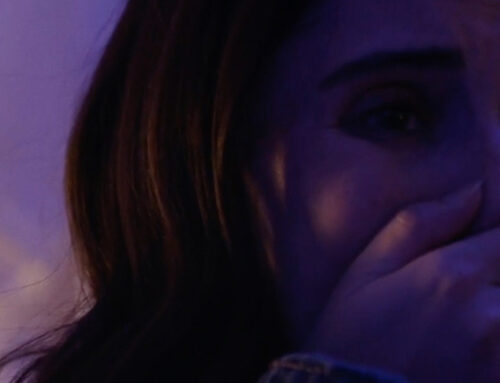Adapting theater to cinema may look like a simple task because it is possible to shoot as many times as necessary without fear of showing errors on stage. But when it comes to conveying sentiments as complicated as a parent’s grief at losing their child and the harsh lessons a young adult receives at the expense of their freedom, there can be complications that artistic flair or technical editing skill can salvage. if the emotions are not permeable. Borrowed, a recent adaptation of the tables to the big screen, gives some lessons in this regard.
David (Jonathan Del Arco), an artist living in Florida, invites a young man named Justin (Héctor Medina) to his home with the purpose of using his chiseled face for his next art project and some dinner– some other intentions are implied as the evening passes by. Justin begins to have an eerie feeling just by looking at David’s paintings, but before he can make a run to the door, David has set in motion a plan to make him spend an evening that will extend his stay until David manages to find what he’s looking for, either in Justin or in his own life.
Borrowed has an interesting handling of its storyline by showing two divergent characters. First we have David, whose characteristics define him to have an intense nature with intentions that seem finite and deadly, but it’s all a front to the why he keeps Justin deprived of his freedom. It’s noticeable there’s been a lot of work done to David’s profile to model him as an antagonist the audience could love and hate in the blink of an eye.
The same cannot be said about Justin’s character because it doesn’t show much of the profile introduced from the beginning. He seems to be somewhat empty and adaptable to the needs of David that, although at times it seems to be a defense mechanism to ensure his survival, he does not assimilate to the aspects of the biographical features he gives through dialogue. This is not the actor’s fault– Héctor Medina has done a splendid job at portraying Justin. I could probably blame the screenwriters for unevenly weighing the characters when the story is built around two personas with different but not less important issues, leaving one character forced to be the driver of the other one’s actions– coercing it to look like a supporting role instead of a lead.
What makes Borrowed strong, aside from stellar performances, is the well-structured dialogue between David and Justin. Paying attention to each line, because there aren’t many visual details to build your own conclusion, something interesting can be noticed at the end of most scenes that carry a heavy part of the conversation– it always ends with a question. It is as if these were thrown on purpose to a doubting audience so anyone can answer them according to what they’ve just witnessed. I wouldn’t be surprised if these were included in a way to break the fourth wall so that the viewers can interact expressing their opinions because, at the end of the film, the characters form prejudices of each other, just as the audience can create theirs.
Borrowed may look like a thriller but it stands out more as a drama about mistakes and how sometimes those are tried to be fixed by still missing the mark. It’s a film without boundaries that may not bring closure for some, but in life we do not always witness the best endings to expect a work of fiction to do in life.
8 OUT OF 10 HANDCUFFS
| Borrowed | ||
| RATING: | N/A |
Borrowed Trailer |
| Runtime: | 1 Hr., 28 Mins. | |
| Directed By: | ||
| Written By: | ||







